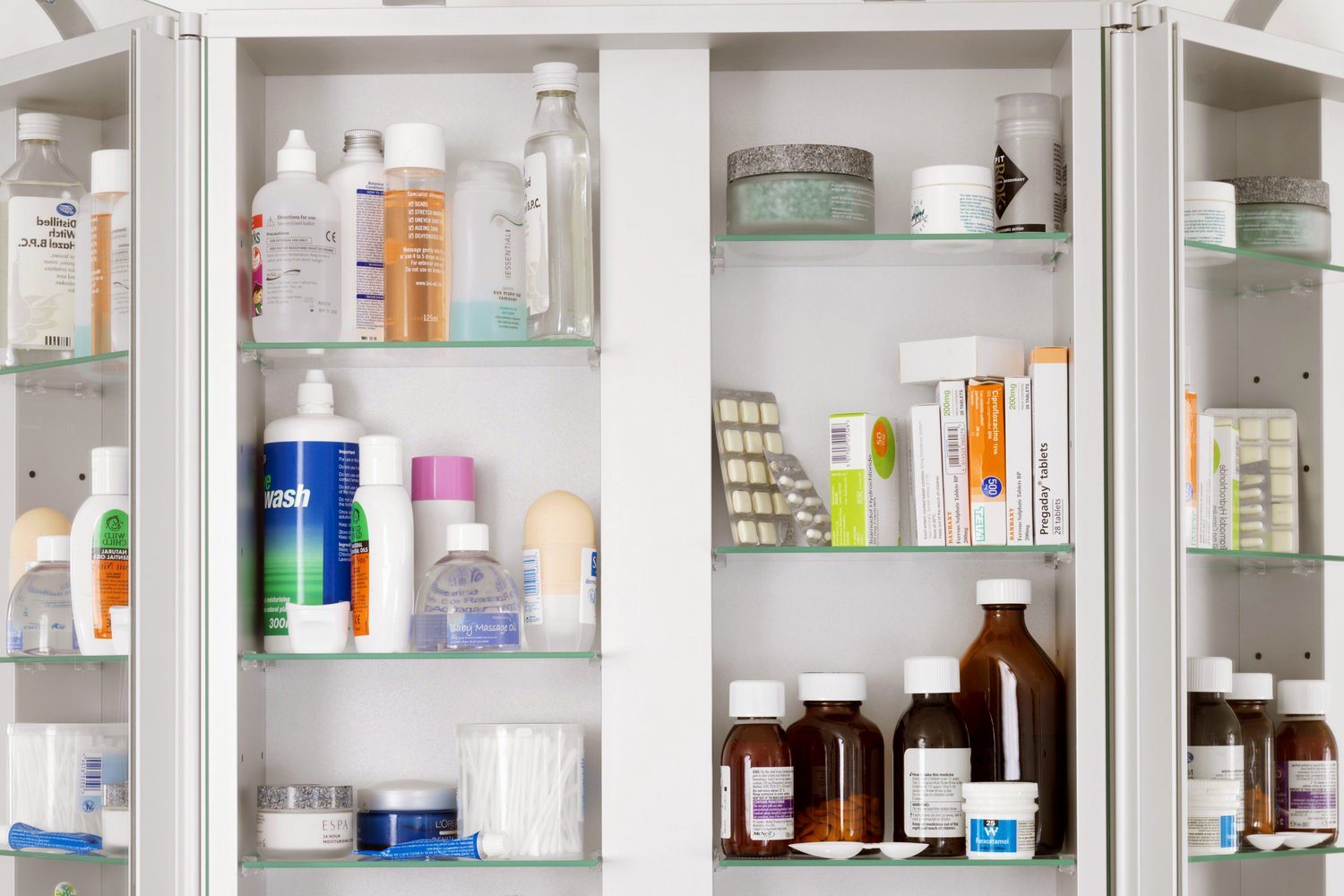
What nurses always keep in their medicine cabinets
The key to being prepared for a medical emergency is to keep a fully stocked and effective medicine cabinet. The first step: Check out your current inventory and toss anything that has expired. “It is really common to buy things, not need them for a long time, and then when you go to use them they are expired,” says Andrea Tran, a registered nurse, an international board-certified lactation consultant, and founder of Breastfeeding Confidential, a blog about all things breastfeeding.
“A tip to manage expiration dates is to have an inventory list of all the meds in your cabinet plus their expiration dates. Keep it handy and check it monthly. If you have a kit, include the earliest expiration date in there.” Tran adds that you should also avoid combining or repackaging and keep items in their original boxes or bottles. That way, you’ll always know what the expiration dates are.
Ready to restock your medicine cabinet? Read on for the products nurses rely on to heal every ache, cut, and infection.
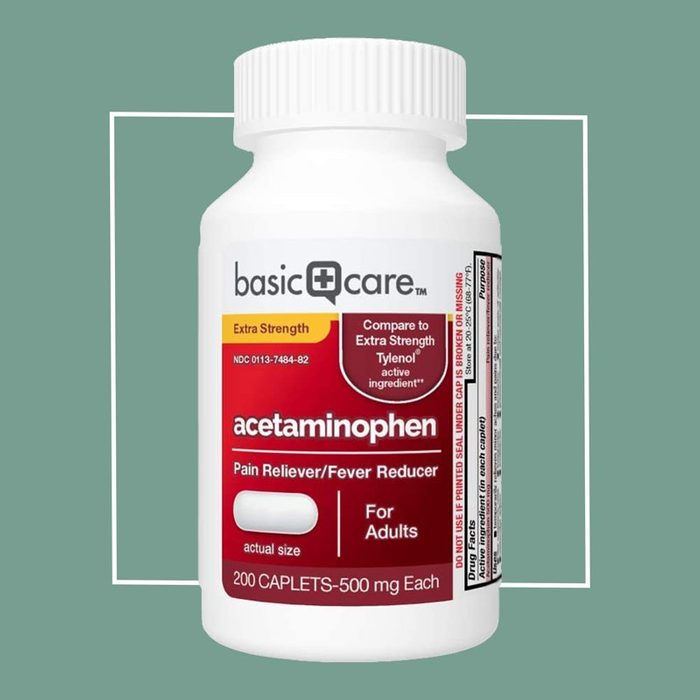
Acetaminophen
“Acetaminophen medication is great for headaches and works as a fever reducer,” says Sandra Crawley, RN and medical consultant at the parenting website Mom Loves Best. Indeed, acetaminophen (the medication found in Tylenol) helps to regulate body temperature and relieve the aches and pains that come with a fever, plus reduce pain caused by strains, sprains, and fractures. A 2017 study published in JAMA found that non-opioid painkillers like acetaminophen were as effective for reducing pain as opioid medications.
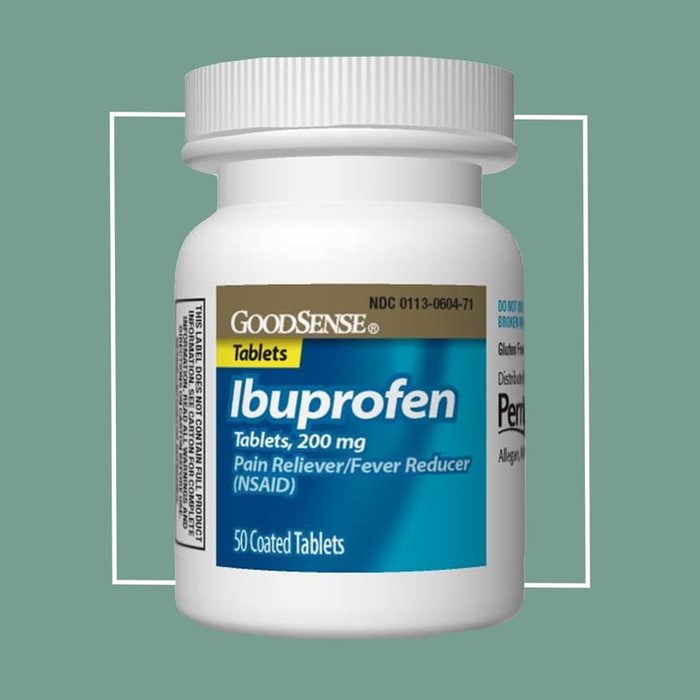
Ibuprofen
“Ibuprofen works as an anti-inflammatory, which is great for body and muscle pain,” says Crawley. Another perk: According to a 2015 study published in the journal Pain, ibuprofen (which is found in Advil and Motrin) also has a pain-killing effect in the brain, helping ease the pain following an injury or surgical procedure by 83 percent 90 minutes after it occurs. But experts also encourage caution when taking nonsteroidal anti-inflammatories (NSAIDs) like ibuprofen. A 2016 study in the European Heart Journal: Cardiovascular Pharmacotherapy found that regular and consistent use may increase your risk of heart attack by up to 30 percent. (Psst: Here are the times ibuprofen won’t work.)
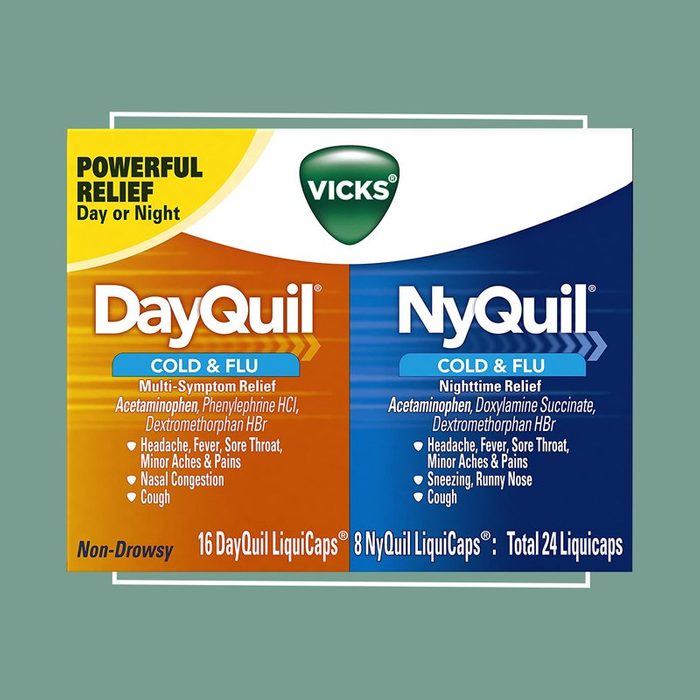
Vicks NyQuil and DayQuil
“Cold and flu medication like NyQuil and DayQuil are always in stock in our medicine cabinet,” says Crawley. “These are great fever reducers that contain antihistamines, pain relievers, and a cough suppressant.” As a one-stop option to limit symptoms like coughing, sneezing, congestion, and mild fever, combination meds like DayQuil and NyQuil can’t be beat. Just don’t combine them with other medications that might have the same ingredients; it could result in you taking more than the recommended amount. (Plus, check out this home remedy for colds that doctors love.)
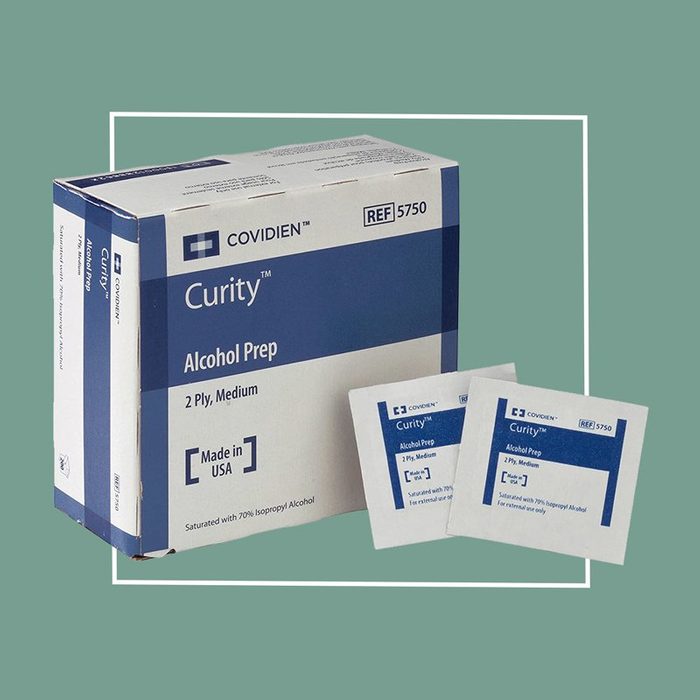
Alcohol swabs
“My medicine cabinet is always stocked with lots of alcohol swabs. Every cut, scrape or skin abrasion gets a rub down,” says Nancy Brook, RN and a nurse practitioner at Stanford Healthcare and author of The Nurse Practitioner’s Bag. The reason: According to the Centers for Disease Control and Prevention, alcohol immediately kills any bacteria, viruses, or fungi that are present, preventing them from entering the body through the cut and causing an infection.
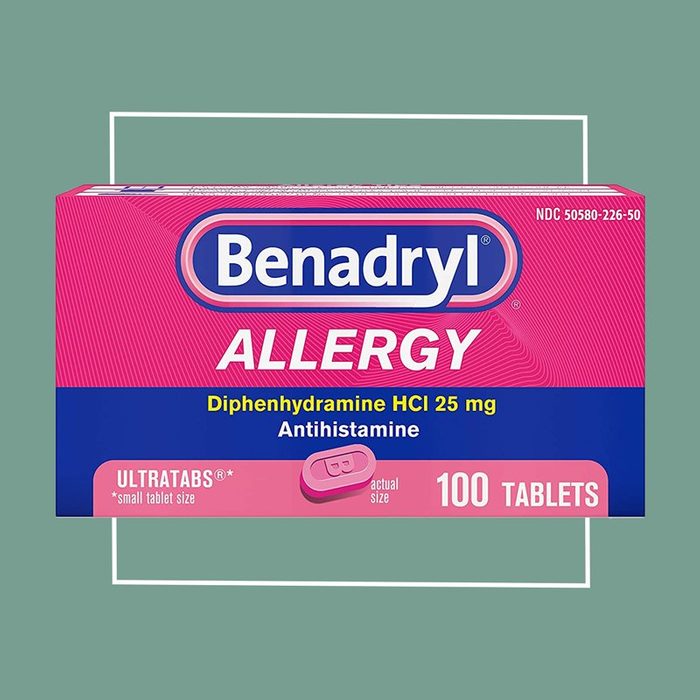
Benadryl
“Benadryl is a must have for any allergic reaction,” says Brook. “I always recommend 25 mg over-the-counter.” During an allergic episode, the body releases chemical messengers called histamines, which cause symptoms like inflammation, swelling, itchiness, sneezing, and runny nose. But diphenhydramine, or Benadryl, acts as an antihistamine, blocking histamine’s effects and curbing symptoms.
While powerful in combatting symptoms when they arise, research suggests that antihistamines should not be taken long term: In a 2015 study, published in JAMA Internal Medicine, taking an antihistamine for three years or more was associated with a 54 percent higher risk of developing dementia than taking the same dose for three months or less. Brook adds: “Benadryl should not be taken with sedatives, sleeping pills, muscle relaxants or other drugs that are central nervous system depressants.” Also, keep in mind that these are the worst Canadian cities for allergies.
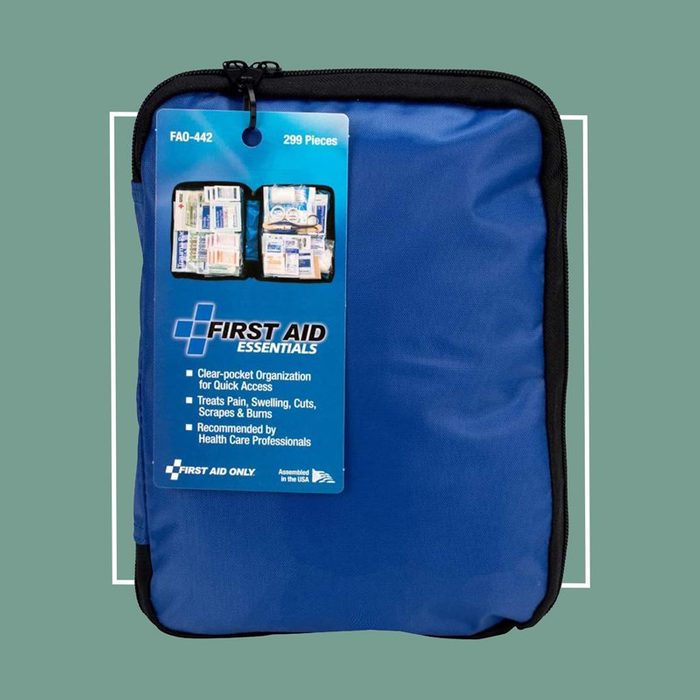
First aid kit
According to the Government of Canada, less than half of Canadians live in a household with an emergency supply kit. “I keep a first aid kit in my cabinet and I think every household should have one,” says Glenda Hargrove, RN, owner of nursing-inspired brand Pill Apparel. “I am so serious about this that I’ve gifted my immediate family with first aid kits. It’s one of those things that you don’t think about needing until you actually need it.”
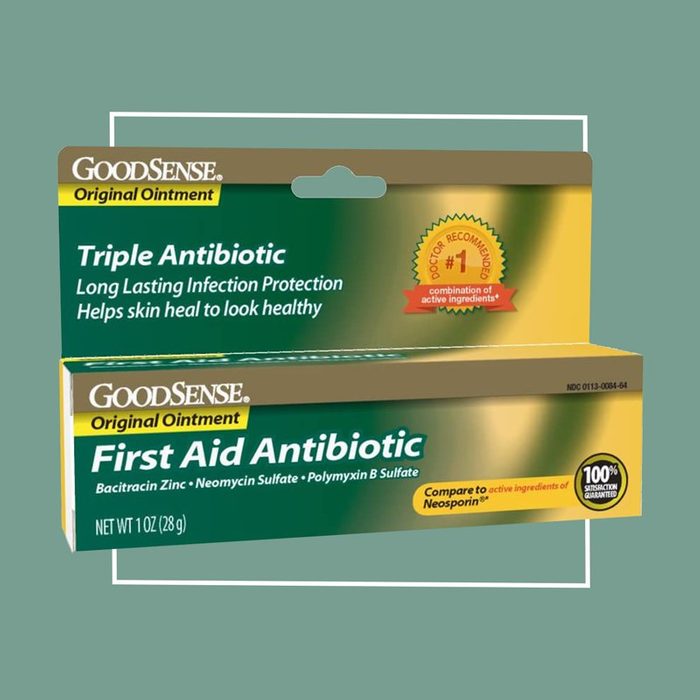
Antibiotic ointment
“Antibiotic ointment cream is good for cleaning out cuts, preventing infections, and promoting healing,” says Crawley. Topical antibiotics have been shown to quicken the healing of minor scrapes, cuts, and burns, and according to a 2018 review in Infection and Drug Resistance, they can effectively lower your risk of infection as the wound closes.
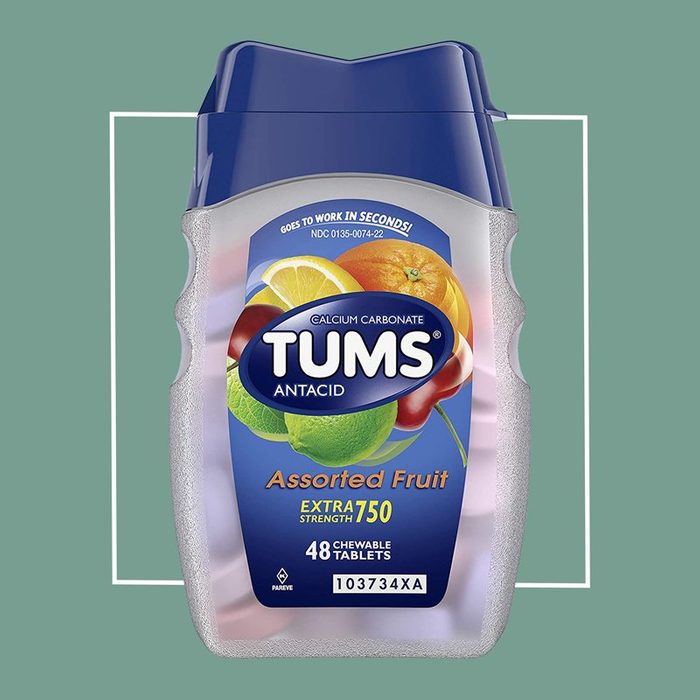
TUMS
“Nurses are well-known for eating super fast when they finally have time to sit down,” says Crawley. “It’s a habit we pick up at work, never knowing how much time we’ll have for a meal. Even at home, this habit is hard to break. That is why you will find most nurses keep a bottle of TUMS in their lockers at work and in their medicine cabinets at home. The TUMS are great for safe, fast heartburn relief.” Antacids may interact with certain prescription drugs, increasing the absorption of some while lowering the absorption of others. If you need to start taking prescription meds, be sure to ask your doctor if it is still safe to take antacids as well.
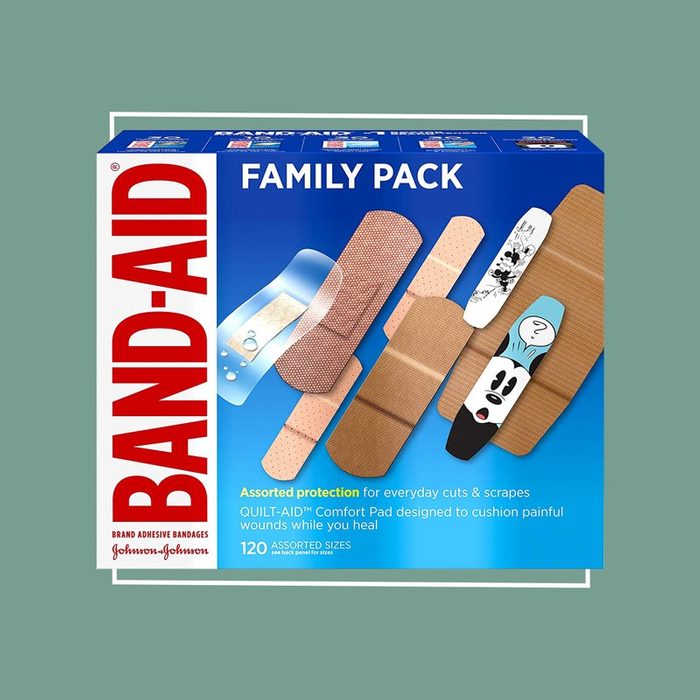
Band aids
“Everyone needs band aids!” says Brook. There are a wide variety of shapes and sizes of band aids available. (Also, here’s what first-aid essentials you should bring if you’re going on a hike.)
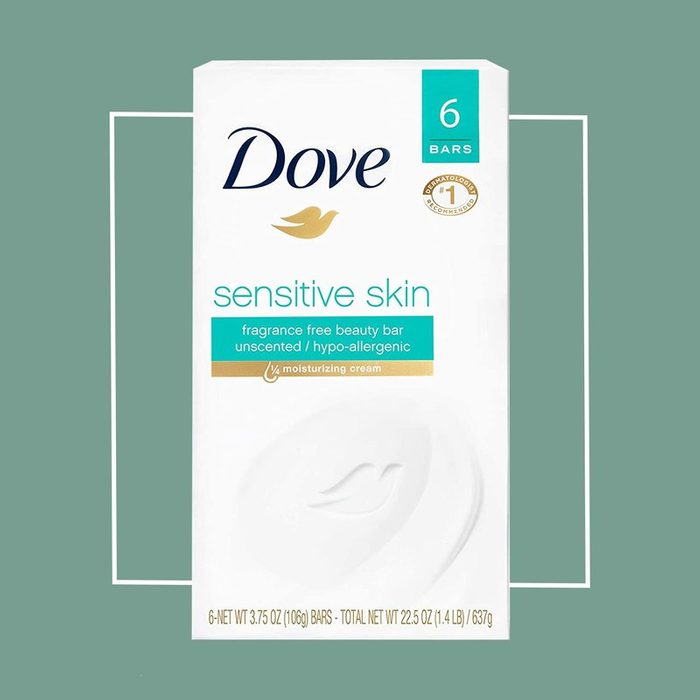
Soap
“At home, I only use non-antibacterial soap for my family,” shares Angie McLaughlin, RN with the at-home lab testing company Everlywell. In addition to being gentler on sensitive skin, McLaughlin says there are other reasons to stick to the basics when it comes to soap. “There’s no science to show that antibacterial soap does a better job protecting us from other illnesses and infections compared to regular soap and water. Also, the ingredients found in most antibacterial soaps haven’t been proven to be safe when used daily over a long period of time.”
Next, learn how to avoid these common handwashing mistakes.
